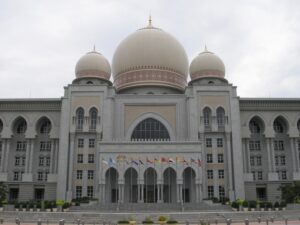As a result of the spread of COVID-19 in Malaysia, the entire country was placed under a Movement Control Order (MCO) on 18 March. Subsequently, a Conditional Movement Control Order (CMCO) has been imposed from 4 May onwards.
During this period, our everyday lives have been disrupted drastically.
Myriads of legal issues have arisen, particularly in relation to employment, contractual or tenancy agreements. Socio-economic and livelihood concerns weigh heavily on our minds. The most vulnerable members of society have been hit the hardest.
Unlike countries such as Singapore and the United Kingdom, Malaysia has yet to pass a COVID-19 law to temporarily deal with pressing problems caused by the pandemic. It was unfortunate that the Parliament of Malaysia did not take the opportunity to table a COVID-19 Act when it held its one-day parliamentary sitting on 18 May. This is a matter of national interest; it should not have been politicised.
The importance of such legislation in Malaysia cannot be overstated. The existing laws that we have do not sufficiently address the hardships and effects brought on by the measures taken to contain the coronavirus.
Currently, the Malaysian government is relying on the Prevention and Control of Infectious Diseases Act 1988 (PCIDA) and the Regulations passed thereunder to deal with the pandemic.
The PCIDA and the Regulations that empower the Health Minister are limited in their scope as they are specifically meant to control, contain, and prevent the spread of infectious diseases. They were never intended to deal with legal or socio-economic consequences arising from an outbreak.
The other existing laws, such as the Contracts Act 1950 and the Employment Act 1955 to name but a few, are meant to operate under normal circumstances, unlike in the present scenario.
Without legislation providing for temporary measures, what would happen if someone were to terminate an unemployment contract or act in a manner that is unconscionable for this period? Do the usual laws apply?
With uncertainty as to when the pandemic will end and without any proper measures to protect those who are affected, the impact of this pandemic on businesses and the general public would be immense.
As such, there is a strong case for our Parliament to urgently come up with a COVID-19 Act.
The following are some areas which ought to be looked into:
- Temporary protection of employees from unlawful termination
- Temporary housing and rental protection for the poor and homeless
- Temporary protection of migrant workers
- Temporary relief for those who are unable to perform certain contractual and statutory obligations
- Temporary suspension of the enforcement of certain legal and/or contractual rights and duties
- Temporary relief and support to distressed individuals, businesses, and firms
- Temporary measures to ensure that the courts and tribunals are able to function through audio-video or remote communication technology
- Alternative arrangements for the conduct of statutory company, society, and professional body meetings
- Provisions to regulate activities by the general public to prevent the spread of the disease
It is hoped that our parliamentarians would get their priorities straight and pass the much-needed legislation during these trying times. In addition, months have passed since the imposition of the MCO. The COVID-19 law must have retrospective effect to cover the period between the MCO and the passing of the law.



